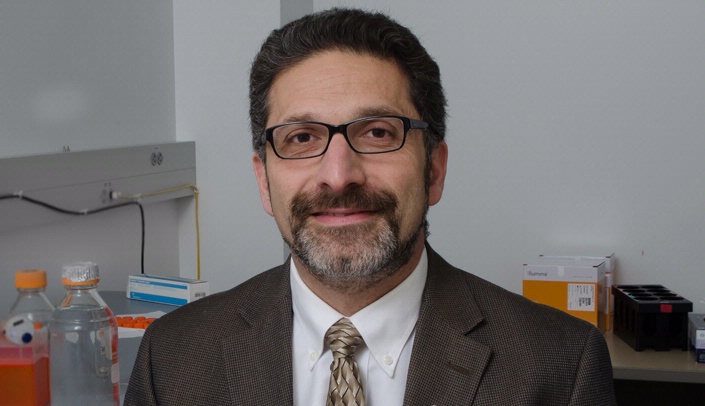UNMC researchers will take part in a clinical trial to obtain safety and efficacy data on the investigational drug ZMapp as a treatment for Ebola virus disease.
The study, run by the National Institute of Allergy and Infectious Diseases (NIAID) in conjunction with the Liberian government, is a randomized controlled trial enrolling adults and children with known Ebola virus infection.
UNMC expects to receive approval of the study, currently being reviewed by the Institutional Review Board, in a few weeks.
“Although ZMapp has been used to treat several Ebola-infected patients in recent months, we cannot determine if the drug actually benefitted those patients because it was not administered within the context of a clinical trial,” said Anthony Fauci, M.D., director of the NIAID, at the National Institutes of Health (NIH).
ZMapp, developed by Mapp Biopharmaceutical Inc., is composed of three different proteins called monoclonal antibodies. ZMapp is designed to prevent the progression of Ebola virus disease within the body by targeting the main surface protein of the Ebola virus.
“Our Biocontainment Unit research team has been actively involved in the development of this research protocol and looks forward to participating in the implementation of the research here in Nebraska,” said Christopher Kratochvil, M.D., UNMC associate vice chancellor for clinical research and vice president for research, Nebraska Medicine.
“The invitation to participate in this research project once again recognizes the world-class facilities at Nebraska Medicine as well as the expertise of the researchers and staff of the Nebraska Biocontainment Unit.”
Andre Kalil, M.D., professor in the UNMC Department of Internal Medicine and infectious diseases physician at Nebraska Medicine, said that the “adaptive” clinical trial will provide answers about the safety and effectiveness of ZMapp and other potential treatments in patients with Ebola virus disease.
“This is really a very important study with an innovative approach,” said Dr. Kalil, who has been involved in the design of the study with Dr. Kratochvil. “We must scientifically and rigorously evaluate the experimental treatments that have been given to date to determine what is safe and effective to our patients. We will find out what is working and what is not while the clinical trial is ongoing and adapt the study based on patients’ clinical response.”
“The idea is to discover and offer the safest and best therapies in the shortest period of time,” Dr. Kalil said. “We look forward to working with our national and international research partners.”
